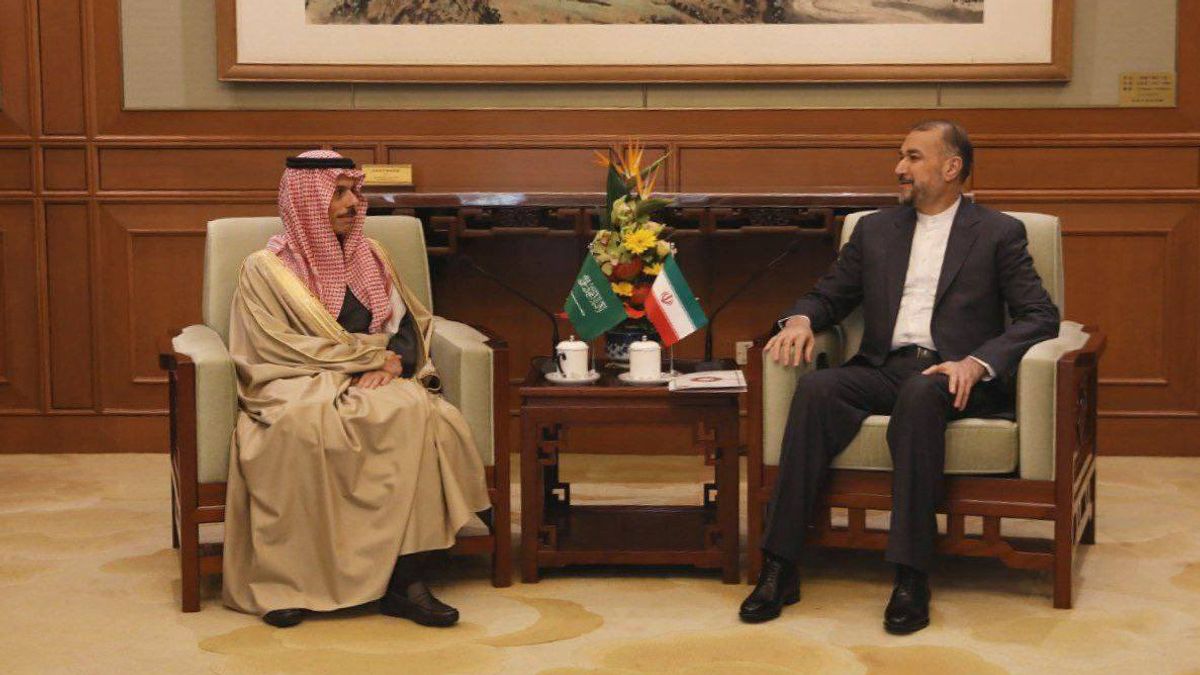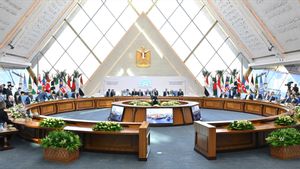JAKARTA - Iran officially invited King Salman of Saudi Arabia to visit Tehran, after China brokered an agreement in March to end decades of hostilities between the two regional rivals.
Iranian Foreign Ministry spokesman Nasser Mihi confirmed the invitation on Monday, saying King Salman's invitation to Tehran would be conditional in exchange for an invitation to Riyadh by Saudi Arabia.
"The Iranian president (Ebrahim Raisi) has sent an invitation to the Saudi king in exchange for an invitation from Riyadh to him," Nasser Miki said in a televised news conference, reported Middle East Eye April 17.
After years of hostilities that sparked conflict in the Middle East, Iran and Saudi Arabia agreed to end their diplomatic rifts, reopening their diplomatic mission in March.
Earlier, Chinese President Xi Jinping helped mediate a surprising deal leaving the United States on the sidelines.
Earlier this month, Saudi Arabia's Foreign Ministers and Iran met in Beijing for the first time in seven years. Soon after, the two countries issued a joint statement announcing they would reopen their embassy to each other within two months.
The delegation also agreed to "expand" their bilateral talks to discuss "important issues".
Since then, Iran's Tasnim news agency said the two countries had planned to exchange technical teams to discuss the establishment of embassies for each other within two months.
It is known that diplomatic relations between Riyadh and Tehran have been strained since Saudi Arabia executed Shiite cleric Nimr al-Nimr in 2016, a critic of the Saudi Arabian monarchy and dozens of supporters.
The attack by Iranian protesters on the Saudi Arabian Embassy following the execution prompted Riyadh to cut diplomatic ties with Iran.
Tensions between the two countries have risen since then, given Saudi Arabia's deadly war against Iran's Yemen-backed Houthi movement which began in 2015, as well as the deaths of hundreds of Iranian pilgrims in the raids in the same year.
As part of the agreement signed last month, the two sides "suppressed respect for sovereignty and did not interfere with each other's internal affairs" and agreed to implement a security cooperation agreement signed in 2001.
The deal is widely seen as a diplomatic victory for China in the Gulf region, which the United States considers its territory of influence.
The English, Chinese, Japanese, Arabic, and French versions are automatically generated by the AI. So there may still be inaccuracies in translating, please always see Indonesian as our main language. (system supported by DigitalSiber.id)








